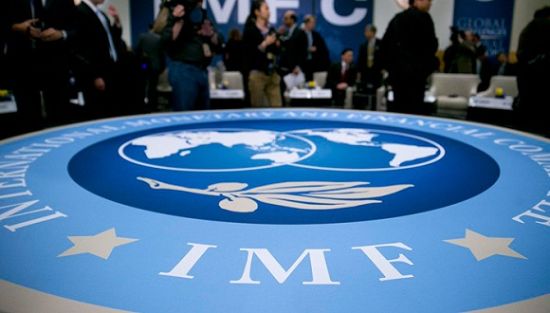
China has the third largest IMF quota and voting share after the United States and Japan since the IMF reform plan being ratified by the U.S. Congress last week. [Photo: finance.sina.com.cn]
Emerging powers like China, India, and Brazil have been waiting five years to have a greater say in the running of the International Monetary Fund.
Analysts say proposed reforms will expand the voting power of those countries, helping to shape the institution for the twenty-first century.
From Washington, Rebecca Foster reports.
The 2010 IMF reforms expanded the voting power of China, India, Russia and Brazil.
Those who agreed to give up some voting share included the United States, Saudi Arabia and South Africa, though several European countries gave up the largest share.
Andrew Hanauer is the Campaigns Director at Jubilee USA Network, an organization that aims to improve the quality of lending to poorer countries.
"It's a big deal, it's definitely a step in the right direction. We've been waiting more than five years for this to happen. 205 There's no question that it did not look for the United States being the only country holding these reforms up, particularly because the United States is the only country that has the power to hold things up by itself at the IMF."
The Obama administration has been an enthusiastic supporter of the reforms, but the five year delay was caused by the US Congress, which wouldn't or couldn't vote to approve the changes.
Investment Advisor Douglas Rediker who is also a Visiting Fellow at the Peterson Institute for International Economics says by voting to approve the changes, the US Congress has finally closed a credibility gap.
"This was a US initiative five years ago, to actually reform not just the voting rights or the quota at the IMF, but the overall governance structure to give emerging markets a much more representative voice at the table. And then, the irony was that it was the US that turned out to be the one party that held up the very reforms that the US spearheaded. "
The five year delay has also pushed back negotiations for a new set of IMF reforms which will now begin and Douglas Rediker says that process will begin in 2016.
"The IMF articles contemplate an ever shifting global economic landscape. That's why under the rules the IMF is supposed to reassess this governance structure and the quotas by which countries exercise their rights, simply because the world moves on and economic strengths wax and wane."
With China holding the presidency of the G20 in 2016 that's likely to lead to new efforts to expand the role of emerging nations in the architecture of the world's economic leadership.
For CRI, I'm Rebecca Foster in Washington.